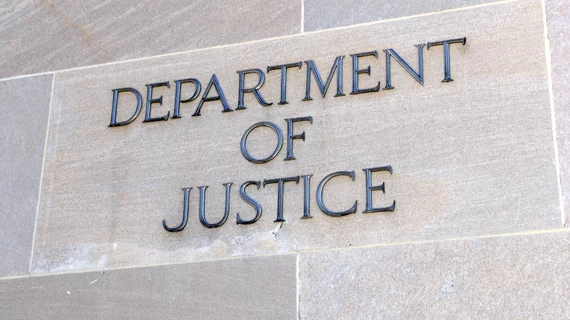Department of Justice fires back over Texas physicians’ surprise billing lawsuit
The Department of Justice is firing back in response to a lawsuit over legislation banning surprise medical bills, which went into effect on Jan. 1.
Physicians first filed suit at the end of October, hoping to halt a controversial provision of the No Surprises Act aimed at settling disputes between payers and providers. The DOJ has now issued its initial response, arguing that the Texas Medical Association has no standing in the case, as it has not demonstrated the law will negatively impact physicians.
“The plaintiffs simply do not provide sufficient detail to evaluate their claim that they are harmed by the rule, or that they would benefit if the rule were phrased differently,” the DOJ said in a Jan. 10 brief, Inside Health Policy reported Tuesday.
Texas doctors are concerned about the new dispute-resolution process’ focus on the “qualifying payment amount” — essentially the median contracted in-network rate for a service. Under Congress’ original intent, independent arbitrators were supposed to consider several factors before reaching a final reimbursement amount. But physicians believe the Biden administration’s interpretation of the final rule misunderstands lawmakers’ guidance, places too much weight on the QPA, and tips the scales in favor of insurers.
DOJ, however, believes docs must prove potential harm from the rule, instead of offering speculation. The department also contends the administration is correct in its reading of the statute.
“Indeed, it is difficult to imagine how the arbitrator could go about the decision-making process without starting with the qualifying payment amount,” the Department of Justice noted.
Oral arguments in the case are set to start on Feb. 4. Meanwhile, others including the American College of Radiology and American Medical Association have also filed suit against the feds over similar concerns stemming from the new dispute-resolution process.
Read more from IHP below (subscription required).

